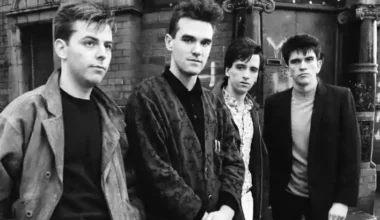Being in one of the biggest rock bands of all time is both a blessing and a curse. While the music can define an era, it can also become a permanent shadow, leaving little room for reinvention. Robert Plant experienced this firsthand with Led Zeppelin but knew things could have been much worse.
Zeppelin may have disbanded in 1980, but their influence never faded. Their first four albums remain essential listening for any rock fan, even inspiring hip-hop acts with their bombastic riffs and thunderous production. Yet, despite his legendary status, Plant never wanted to be confined to one sound.
Throughout his solo career, he actively distanced himself from Zeppelin’s hard rock formula. Whether reviving The Band of Joy or collaborating with bluegrass singer Alison Krauss on Raising Sand, Plant leaned into roots and folk influences rather than revisiting the bombastic blues-rock of his past.
He had seen firsthand how easily bands could be pigeonholed. Groups like Yes and King Crimson, despite their varied discographies, were quickly categorized as progressive rock because of their complex, sprawling compositions. But for Plant, one band stood out as an example of how a label could be inescapable—Genesis.
Genesis was a very different entity, evolving from the theatrical excess of their Peter Gabriel era into a chart-topping pop powerhouse with Phil Collins at the helm. Songs like That’s All and Invisible Touch helped them dominate the MTV generation, yet the ‘prog rock’ label followed them despite their shift toward mainstream success.
Plant was thankful he never had to deal with that kind of categorization. Speaking about the weight of musical labels, he once remarked, “So Led Zep—the miscalculations and misinterpretations are quite vivid and very funny. But thank God I wasn’t in Genesis, or I’d be called ‘prog rock’ now. And that’s something you can never get round!”
And he had a point. While ‘prog rock’ was never an insult, the expectations tied to it could be suffocating. Genesis fans who embraced the intricate, conceptual sound of their early years had a hard time accepting Collins as a pop icon, let alone a Disney soundtrack composer.
Plant may not have matched the commercial success of Invisible Touch, but he never had to navigate the challenge of appeasing wildly different fan expectations. Led Zeppelin had their time, and rather than trying to recapture its magic, Plant chose to carve his own path—free from the weight of prog-rock labels and nostalgia-driven pressure.







